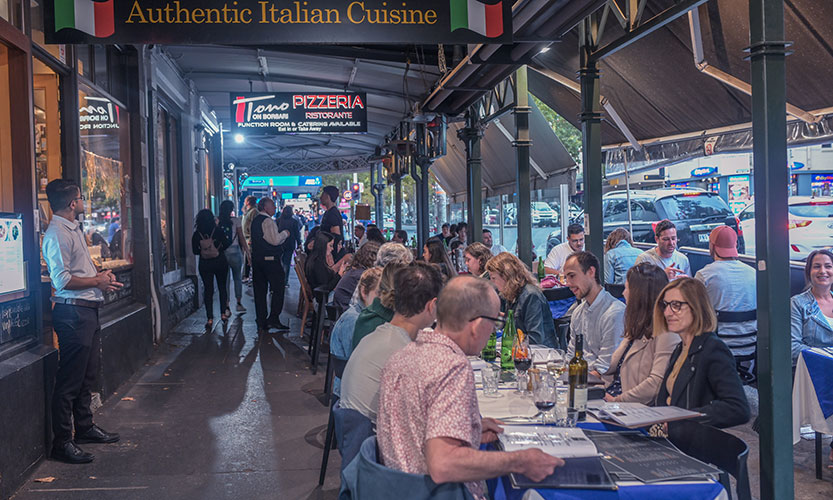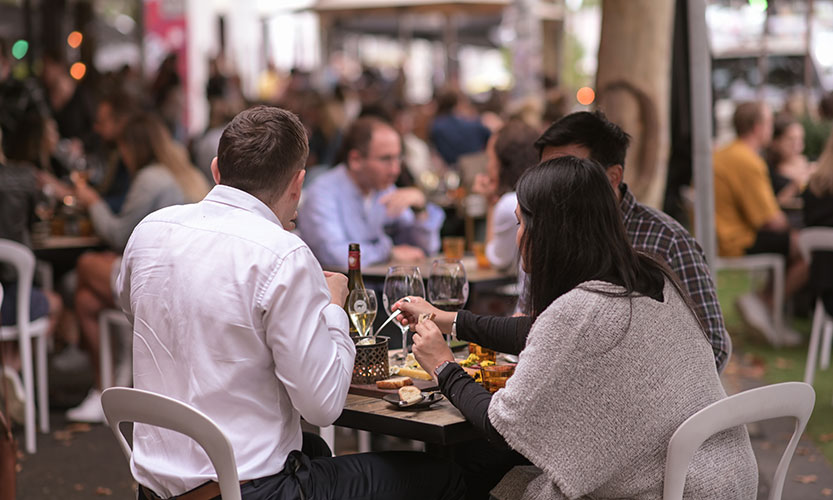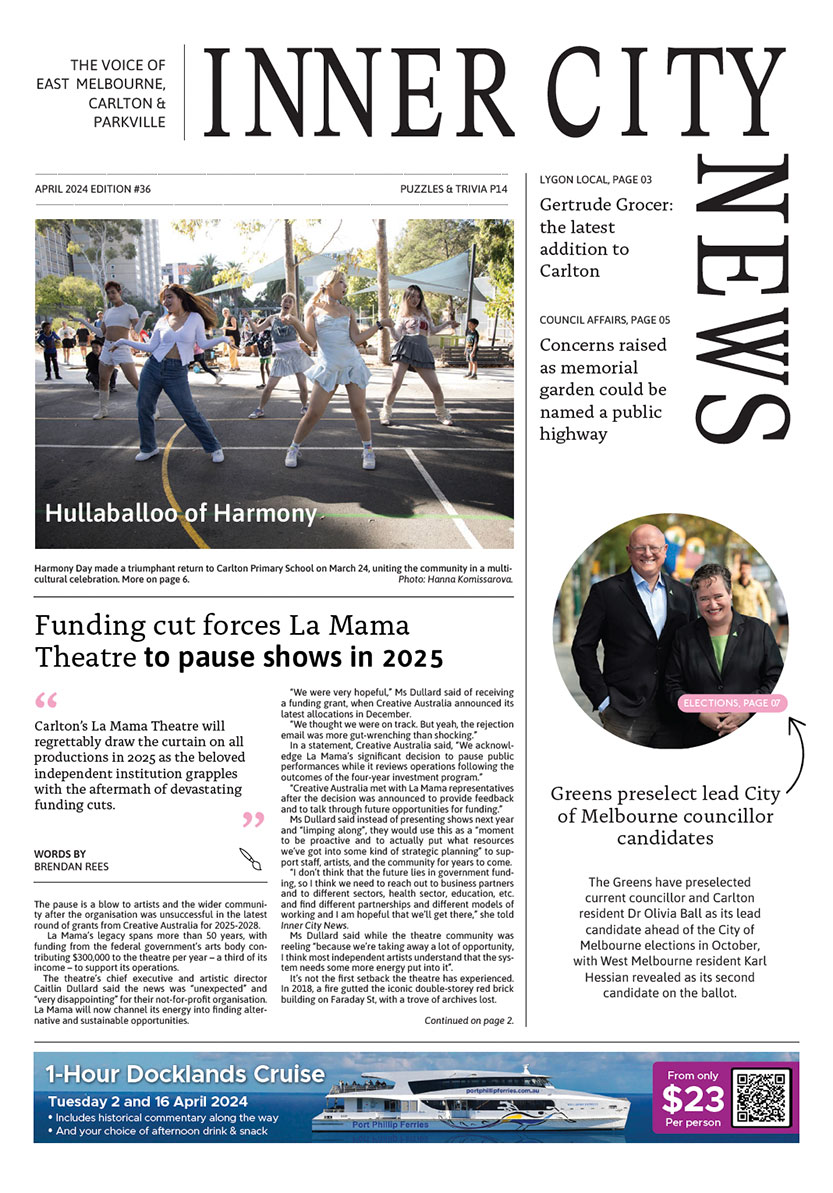Council working to bring life back to Carlton’s night-time scene
By Katie Johnson
After an extended lockdown, curfew, density limits and countless trading restrictions, Carlton’s night-time economy is struggling to return to its former glory.
To bring buzz back to the city, The City of Melbourne (CoM) unanimously carried a motion at the Future Melbourne Committee (FMC) meeting on February 2 to establish an advisory committee of industry leaders dedicated to reviving Melbourne’s night-time economy.
Lord Mayor Sally Capp said that the committee would be crucial to bringing back the night-time scene Melbourne was renowned for.
“Our night-time economy is a differentiator in attracting industry, jobs and visitors and investment,” the Lord Mayor said.
“We have a 24-hour city now we’re getting going again, and I’m confident that the proposed night-time advisory committee will be a source of advice and direction and help us bring back to buzz to Melbourne.”
With COVID protocols still in place and customers wary of returning, businesses across all industries continue to be impacted.
As JobKeeper support is also due to end in March, there is the potential for more job losses if the night-time economy isn’t propped up.
King and Godfree owner Luca Sbardella said although things were slowly returning to normal, restrictions were still having an impact.
“It’s unlike any trading period I’ve experienced in my lifetime. It will be busy then not busy and keep flipflopping,” Mr Sbardella said.
“Just like every other business we’re trying to re-invent ourselves in the wake of the pandemic and even though we’re almost getting back to normality there’s a lot of external factors that are making it hard for us to operate.”
Mr Sbardella said the lack of office workers, university students and tourists meant weeknights were much quieter.
“Most Friday, Saturday and Sunday nights on Lygon St you wouldn’t even know we’ve been through this, but during the week its slower,” Mr Sbardella said.
Chair of the council’s city activation portfolio Cr Roshena Campbell said that improving the lack of foot traffic on weeknights would be a priority for council.
“The City of Melbourne’s night-time economy grew by $310.3 million in 2018, contributed $3.5 billion in annual turnover and supported 31,000 jobs,” Cr Campbell said.
“However, night-time pedestrian activity in the city has dropped by about two-thirds compared to the same time last year.”
Cr Campbell said that the response would need to bring together industry minds to find the best way to support businesses that have grappled with harsh lockdown restrictions and reduced foot-traffic.
“This is about harnessing the best ideas from industries – including hospitality and entertainment – from red-tape reduction to improving safety,” Cr Campbell said.
We want to bring Melbourne’s night-time economy roaring back and to develop a strong plan for its future growth.
Although councillor Phillip Le Liu supported the motion, he cautioned council to remember residents when discussing night-time activities.
“Sometimes when we go full steam ahead with businesses, we forget that 40 per cent of the people living within the City of Melbourne, including me, and I know I’ve heard music blaring out at 1am and rubbish trucks at 3am,” Cr Le Liu said.
“So, I’d be really keen for the committee to think of the people living in the city because we need to get the economy back, but we need to strike the right balance with residents.”
Expressions of interest are now being sought for up to 10 external roles to help boost Melbourne’s night-time economy by providing data and expertise to guide decision making •

Carlton language school championed by Ukrainian refugee







 Download the Latest Edition
Download the Latest Edition